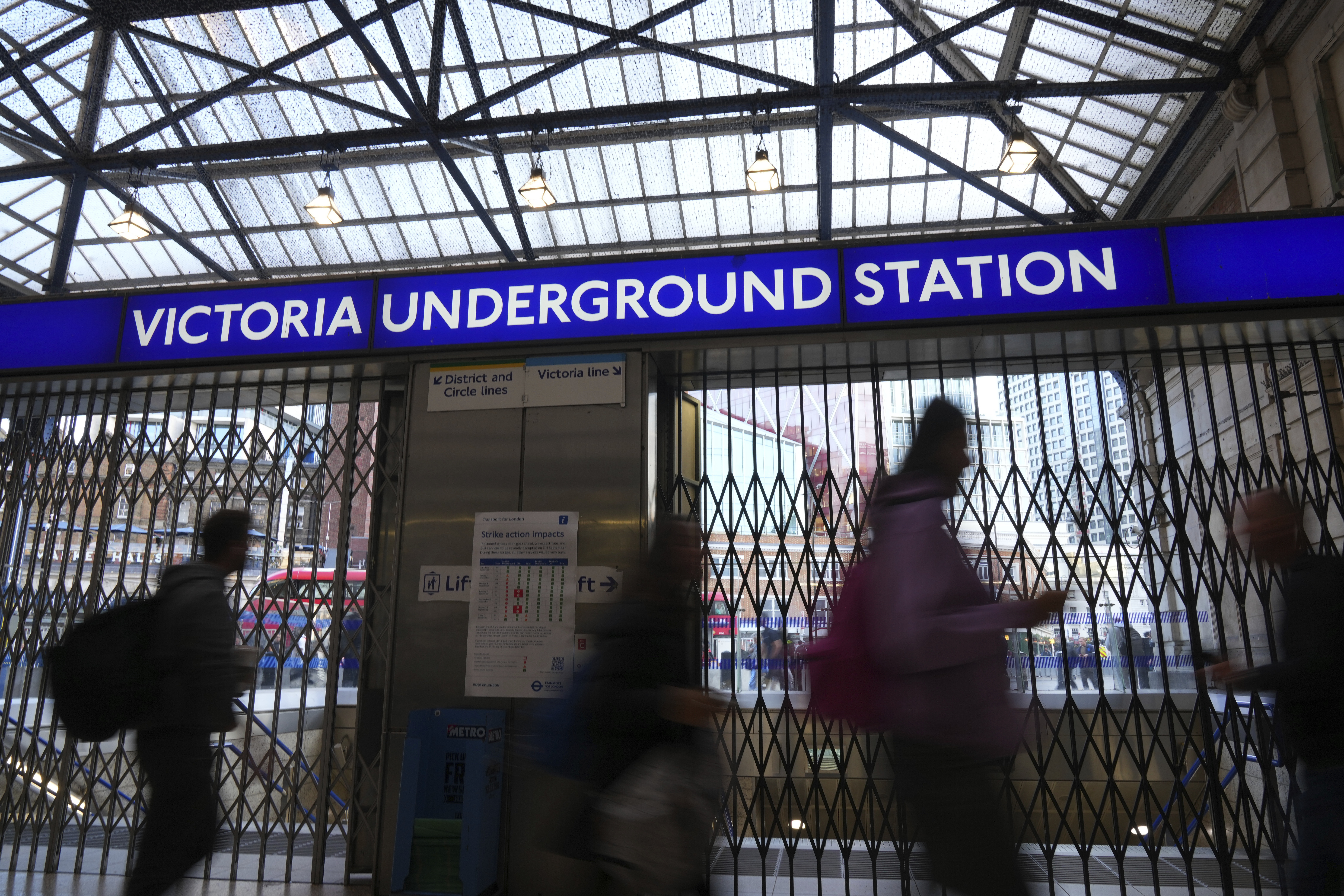
Londoners face severe travel disruption as a strike by workers on the city’s underground train network entered full force on Monday.
The capital’s Tube lines were mostly suspended due to the industrial action by engineering, station and train workers that is expected to cause chaos for commuters most of this week. Services on National Rail, the Elizabeth Line and the Overground were also affected as some routes run over London Underground tracks and through Tube stations. There were long queues for buses.
Staff are protesting over pay and working conditions. A proposal by the RMT labor union to reduce the contractual 35-hour working week isn’t affordable, according to Transport for London (TfL). The union balloted members on the strike action before TfL’s 3.4 percent pay rise offer was put to staff.
ALSO READ: Power outage hits London Underground as lines suspended
The walkouts could cost the economy £230 million ($311 million), according to estimates by the Centre for Economics and Business Research. That doesn’t include wider impacts such as reduced consumer spending and lost productivity, according to Pushpin Singh, managing economist at CEBR.
Stores, restaurants and bars in central London are expected to suffer most from the walkouts, given many finance professionals are able to carry out their jobs remotely at home since the pandemic.
The disruption, which began late last week when some depot operational control managers went on strike in west London, is expected to continue until late morning on Friday, according to TfL. The Docklands Light Railway, which runs to the key financial district of Canary Wharf, will also be impacted by a separate strike, with no services expected on Tuesday and Thursday.


